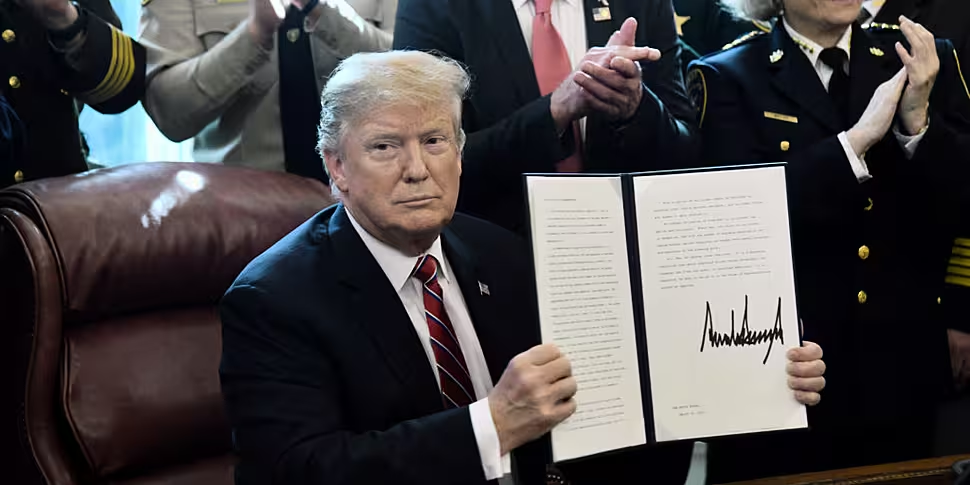Donald Trump has issued his first presidential veto, after Congress voted to oppose his decision to declare a national emergency.
Last month, the US president confirmed he was declaring a national emergency in a bid to secure funding for his wall along the Mexican border.
That came after he failed to secure $5.7bn for the border wall from Congress - a budget impasse that led to the longest US federal government shutdown in history.
The emergency declaration prompted immediate opposition from many lawmakers, who pledged to do whatever they could to oppose the move.
Democrats, who control the House of Representatives, insisted Trump's declaration was unlawful and unconstitutional.
Many also questioned Trump's claims of a border crisis, with House Speaker Nancy Pelosi dubbing it a 'fake emergency'.
The two congressional houses have since passed legislation to end the emergency.
In a significant rebuke, Democrats in the Senate were joined by a dozen Republicans in voting down the emergency - leading to a majority of 59 to 41.
A number of Republicans expressed unease over President Trump's declaration, while also voicing concern over how a similar tactic could be used by future Democratic presidents.
Hardline conservative Senator Rand Paul suggested: "I stand with President Trump on the need for a border wall and stronger border security, but the Constitution clearly states that money cannot be spent unless Congress has passed a law to do so."
Trump veto
President Trump today vetoed the Congressional legislation, sending it back to the two houses.
He claimed the situation at the US / Mexico border remains a "humanitarian crisis" that needs "immediate action".
He told reporters: "It is definitely a national emergency - rarely have we had such a national emergency."
Crucially, Congress will need to vote by a two-thirds majority to override the veto - and that's unlikely to be achieved.
Even if lawmakers fails to override the veto, a number of legal challenges have already been launched by states and civil rights organisations in a bid to end Trump's controversial emergency.









